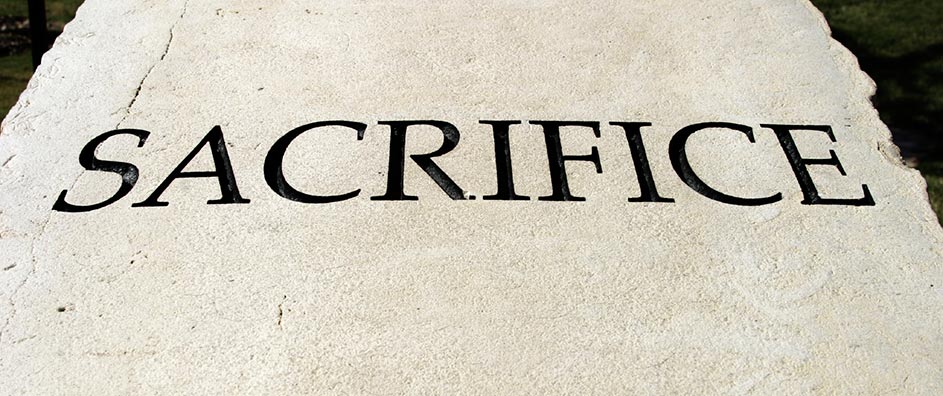The concept of self-sacrifice, revered across various cultures and religions, shines with profound clarity within the Baha’i teachings. It beckons the faithful to embark on an introspective journey, evaluating one’s allegiance to individual desires versus the greater good of humanity. One might ponder: what does it truly mean to embrace the heroic mystery of self-sacrifice? And could it be argued that in our self-oriented society, the act of self-sacrifice is not just noble, but perhaps even revolutionary?
This inquiry invites a deeper exploration into the layers of selflessness espoused by the Baha’i Faith, which fundamentally places great emphasis on the interconnectedness of all individuals and collective advancement. At the heart of the Baha’i teachings lies the principle that self-sacrifice serves not only as an act of love but also as a transformative force capable of uplifting both the giver and the recipient. This essay will dissect the concept of self-sacrifice from a Baha’i perspective, examining its theological foundations, societal implications, and the challenges it presents in modern contexts.
To comprehend the essence of self-sacrifice within Baha’i teachings, one must navigate the intricate web of spiritual and moral principles that underpin this virtue. Baha’u’llah, the founder of the Baha’i Faith, articulated that true happiness can only be achieved when individuals transcend personal desires to uphold the welfare of others. This precept resonates with the maxim that “the best beloved of all things in My sight is justice,” suggesting that a commitment to fairness and equity often requires personal sacrifice. The juxtaposition of individual agency against collective responsibility invites adherents to engage in a delicate balance—enhancing their lives while serving humanity.
Moreover, self-sacrifice is not merely an abstract ideal but is exemplified through the lives of the Baha’i martyrs and heroes who have demonstrated unwavering commitment to their faith, often at great personal cost. These figures embody the spirit of self-sacrifice, inspiring contemporary Baha’is to reflect on their life choices and the ramifications of their actions. As the vivid tapestry of their sacrifices unfolds, it challenges each of us: are we willing to forsake our comforts and conveniences for the sake of justice and the common good? The existential weight of this inquiry transcends the individual realm and reverberates within the broader societal framework.
In societies increasingly characterized by materialism and self-interest, the principle of self-sacrifice emerges as both a beacon and a challenge. It encourages individuals to cultivate empathy and a sense of solidarity with others. Baha’is are urged to engage in acts of selflessness, such as community service and humanitarian efforts, recognizing that these actions contribute to the upliftment of society at large. Nevertheless, the perennial challenge remains—how does one navigate the dichotomy of self-care and selflessness? The balance between attending to personal needs and the universal call to serve can often lead individuals into the poignant conundrum: to what extent does personal sacrifice foster collective advancement?
Further complicating this dynamic is the modern societal narrative that often equates self-worth with individual achievement and success. The seductive allure of personal gain can overshadow the altruistic intent that self-sacrifice demands. The Baha’i teachings, however, caution against this myopic worldview, inspiring followers to look beyond the confines of the self. They foreground the notion that personal fulfillment and societal progress are inextricably linked. The act of self-sacrifice, therefore, becomes a poignant reminder that one’s life can profoundly impact the collective, creating ripples of positive change.
One notable facet of self-sacrifice within the Baha’i framework is the notion of voluntary relinquishment. Unlike coercive obedience, which strips individuals of their autonomy, Baha’i teachings advocate for an empowered choice to sacrifice for the sake of others. This empowers followers to make conscious decisions, fostering a culture of relinquishment that is both respectful and transformative. In this light, self-sacrifice is not merely an obligation; it is a voluntary expression of love—a heroic stance against the tide of self-indulgence.
As we confront the complexities of self-sacrifice, the concept of ‘heroism’ deserves scrutiny. Traditional narratives often depict heroes as individuals with extraordinary capabilities, yet Baha’i teachings redefine heroism as the ability to place the needs of others before one’s own. This reframing invites us to recognize everyday acts of selfless service—whether in the form of nurturing family members, volunteering in the community, or even standing up for justice in the face of adversity—as heroic. It compels individuals to redefine their understanding of courage, positioning self-sacrifice as an essential quality for personal and societal metamorphosis.
In concert with this transformative potential, the spiritual implications of self-sacrifice cannot be overlooked. Engaging in acts of selflessness often leads to an elevation of the soul and an enrichment of spiritual life. Baha’is believe that through self-sacrifice, one transcends mere existence to realize their intrinsic spiritual nature. This connection between self-sacrifice and spirituality encapsulates the very heart of Baha’i teachings, weaves the fabric of communal ties, and nurtures a vision where each sacrifice paves the way for a more just and harmonious world.
Ultimately, the heroic mystery of self-sacrifice encapsulated within Baha’i principles invites a profound reassessment of personal and collective identities. It poses a daring challenge to individuals entrenched in the comforts of modernity: how willing are you to venture beyond your selfish inclinations for the benefit of others? By embodying this principle, Baha’is chart a course towards both personal elevation and communal flourishing, revealing that the path of self-sacrifice, while fraught with challenges, is one that leads ultimately to unparalleled fulfillment and unity.
